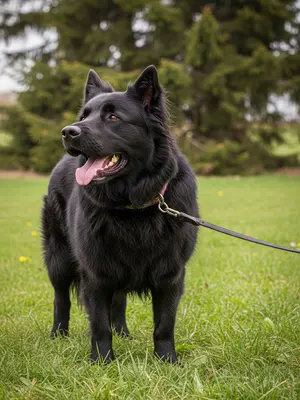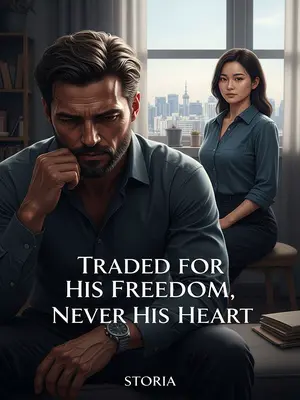Chapter 1: His Lover, Not His Equal
I was with Harrison Grant for five years.
Five years. Sometimes it still surprises me—an entire chapter of my life, written in the margins of his story. It’s the kind of stretch that sneaks up on you; honestly, you don’t even notice it happening. Then, when it ends, you’re left blinking in the daylight, wondering how the seasons changed while you weren’t looking.
I was his executive assistant. His organizer. His house manager, caretaker, and lover.
Sometimes I think I wore more hats than a Broadway costume rack. My days revolved around his calendar, his coffee, his moods—and at night, yeah, his arms. Somewhere in that tangle, I lost track of where my role ended and I began.
Now he was getting married, and just to keep things simple, he wanted me to marry someone else.
He called it “making things neat.” Only Harrison, right? Always treating people’s lives like chess pieces—moving me off his board so he could start a new game. I should’ve felt insulted, but all I felt was tired.
From twenty-two to twenty-seven—those years when you’re supposed to be figuring out your life—I spent them all by Harrison’s side.
Those are the years you’re supposed to be figuring out who you are, chasing wild dreams, maybe falling in love for real. I spent them color-coding his schedule and learning exactly how he liked his shirts pressed. That was my world.
I’d been with him so long that his friends, who at first didn’t even notice me, eventually started calling me “Mrs. Grant,” half-joking, half-serious.
It started as a joke at poker night—one of those rich-guy jokes that’s half a dig, half respect. The name stuck. Eventually, even the housekeeper started using it when she thought I couldn’t hear.
After a while, even I started to wonder if I had some hidden charm I didn’t know about. Otherwise, how could I have stayed by the side of someone everyone else thought was out of reach for so long?
It’s a weird kind of self-doubt, the kind that creeps in when you’re the last one at the party. I’d look in the mirror and wonder if there was something about me I couldn’t see—some invisible glue holding me to him, or maybe just stubbornness.
Sometimes I’d overthink it, too. What was it about me that caught Harrison’s attention?
Was it the way I never complained? Or the fact that I could recite his coffee order backwards and forwards, and never forgot to pick up his dry cleaning? Or maybe he just liked that I never asked for anything he wasn’t ready to give.
It’s not that I thought too highly of myself, but from the first time we met, I noticed he did a double-take.
That memory still makes me blush. Silly, I know. I was a nobody, but there was something in his eyes—sharp and assessing, like he was measuring me for a suit I didn’t know I’d have to wear.
Back in my senior year of college, during campus recruiting, my degree from a top school and solid grades landed me a spot at Grant Holdings.
Everyone told me I’d made it. I remember the thrill of getting that offer letter, the way my hands shook when I called Grandma to tell her the news. In my tiny apartment, I danced around in my pajamas, certain I was on the brink of something big.
After graduation, I joined Grant Holdings, and, yeah, everyone I knew was a little jealous.
It felt like stepping onto a movie set—marble floors, glass walls, people in sharp suits moving like they had somewhere important to be. I remember walking through those revolving doors and thinking: This is it. I’ve arrived.
The company’s headquarters were in a thirty-two-story tower downtown. The executive admin team alone had over a dozen staff, all dedicated to serving President Harrison Grant.
That place ran like a well-oiled machine. Or maybe a pressure cooker. I was just one cog in a whole engine of assistants—each of us assigned a sliver of Harrison’s world, hoping to be noticed, or at least not yelled at.
Just another face in the crowd.
One face in a sea of perfectly coiffed hair and pressed blouses, all hustling to keep the gears turning.
Our office was on the thirty-first floor, right below his on the thirty-second.
We used to joke you could smell the money drifting down from upstairs. Not that any of us ever saw it. The thirty-second floor was like the throne room—off-limits unless summoned.
But in my first three months, I’d only seen him twice.
He was like a ghost story in the office. The way people talked about him—like he was more legend than man. I wondered if he even existed, or if he was just a rumor passed around at happy hour.
The first time, I brought a stack of documents for him to sign.
My hands shook so badly I almost dropped the folder. Classic me. I remember triple-checking every page, terrified I’d left a typo. My shoes squeaked on the hardwood as I walked in, and I wanted to disappear.
His office was huge and tastefully decorated, but I didn’t dare look around. I kept my eyes straight ahead and stood quietly by his wide desk, waiting for him to sign.
The air felt thick, like I’d stepped into a museum. I could hear the faint hum of the city below, but all I focused on was not fidgeting. Even the pen he used seemed expensive, gliding across the page with a smoothness I’d never felt.
I could feel him looking me over, even with my head lowered, as he signed.
It was like being under a microscope. I felt every hair on my neck stand up, every breath suddenly too loud.
When he handed the papers back, he glanced at me again.
There was something unreadable in his eyes—like he was cataloging me for future reference. I tried to keep my face neutral, but I’m sure my cheeks were burning.
As I turned to leave, I could feel his eyes on my back. That prickly feeling didn’t fade until I left the office. Only then did I let out a breath.
I remember leaning against the wall outside, heart pounding, thinking: Survived it. For now.
Facing the big boss for the first time, I was sweating buckets.
I wiped them on my skirt before anyone could see. The other assistants gave me sympathetic looks—everyone remembered their first time.
As for his lingering gaze, I convinced myself it was my imagination.
I mean, why would a guy like that notice me? I chalked it up to nerves and tried to move on, but the memory stuck with me longer than I’d admit.
He was the president of Grant Holdings—young, accomplished, wealthy, and handsome. Even celebrities had publicly said they wanted to marry him. A man like that had seen every kind of beauty; why would he look at me twice?
It was almost funny—how out of my league he was. I was just another face in the crowd, and he was the one everyone gossiped about over lunch.
Maybe he just noticed I was a new face, or maybe my outfit was too plain and made the company look bad.
I started second-guessing everything. Was my blouse too wrinkled? Was my hair too boring? Did I stand out for the wrong reasons?
Was I really that forgettable?
It’s a habit I picked up early—always assuming I’m the problem, always trying to blend in.
I’ve always known where I stood. Growing up, I was at best considered pretty. I’d once been voted class beauty in my high school’s honors class, but I was never the type to turn heads.
I was the girl who did her homework, who listened more than she spoke. People liked me, but I was never the star of the show.
But the second time I met him, I got that same feeling like someone was watching me.
There’s something electric about being seen by someone who usually looks right through you. It makes your skin buzz, like you touched a live wire.
I was waiting for the elevator when the doors opened to reveal the tall, expressionless president and his special assistant.
He looked like he’d stepped out of a GQ spread—perfect suit, not a hair out of place. Totally out of my league. His assistant stood to the side, eyes down, and I felt like I’d crashed a private party.
I had no idea why he wasn’t using his private elevator and had come into ours. I just froze.
Awkward, party of one. My mind went blank. Do I get in? Wait for the next one? I didn’t want to look like I was avoiding him, but I didn’t want to intrude either.
The thought of sharing that small space with him made my feet feel like they were glued to the floor. But if I didn’t get in, would it look too obvious?
“Come in.”
His voice was calm, almost bored, but there was a hint of something else—maybe he was just amused, maybe he was just done waiting. Either way, I felt like a kid caught sneaking cookies.
It broke the spell. I mumbled a thank you and stepped inside, careful to keep a respectful distance.
The elevator doors slid shut with a soft ding, and suddenly the air felt way too thin.
During the two-minute descent, I felt his eyes flick over me again—subtle, almost careless.
I stared straight ahead, counting the floors in my head. But I could feel his gaze—light as a feather, but impossible to ignore.
This time, I was sure it wasn’t my imagination.
You know when you just know? That was it. My heart was racing, but I kept my face blank, praying he couldn’t hear it.
He really was looking at me.
No doubt about it. I told myself not to read into it, but the moment burned itself into my memory.
My heart pounded, loud enough to drown out the elevator music.
I never expected my relationship with Harrison Grant to progress so quickly.
I thought I’d spend years in the trenches, maybe work my way up to a better title. I never dreamed I’d end up in his orbit so soon. I thought I’d have to pay my dues for years.
I’d only been at the company a little over three months, and we’d only met twice. Then we ended up together.
Life has a way of flipping the script when you least expect it. One minute you’re invisible, the next you’re the center of someone else’s story.
That day, I got the news that my grandma was seriously ill and hospitalized. It felt like the sky was falling.
I remember the call—my aunt’s voice shaking, the words tumbling out too fast. I dropped my coffee, watched it soak into the carpet, and felt the world tilt sideways.
With trembling hands, I typed up a leave request and resignation letter, fingers shaking.
I barely remember what I wrote. My hands were numb, my brain a blur. All I could think was: I have to get to her. Now.
While waiting for approval, I ran to the stairwell and broke down, sobbing.
I didn’t care who heard. I slid down the cold concrete steps, hugging my knees, letting the tears come until there was nothing left.
My parents had died in a car accident when I was in elementary school. My grandma raised me.
She was my whole world. Every birthday, every scraped knee, every heartbreak—she was there.
Life had been hard, but she’d always loved me and given me everything she could. I always felt lucky.
She made sure I never felt alone, even when we had nothing. Her hands were always warm, her hugs always tight.
I got into college, landed a good job, and was full of hope for the future.
She cheered for me every step of the way. I promised her I’d make her proud.
I planned to wait until my job was stable, then rent a nicer place and bring Grandma to live with me. Someday, I’d work hard, save up for a down payment, buy a small place, and let her enjoy her old age.
I’d daydream about little things—Sunday breakfasts together, planting flowers on a balcony, maybe even a dog. Simple, happy stuff.
While I was dreaming of that future, it never occurred to me that my healthy grandma would suddenly collapse.
It hit me out of nowhere, like the world just dropped on my head. She’d always seemed so strong.
Relatives back home said her illness was serious, she needed surgery, and would need ongoing treatment.
The words “serious” and “surgery” echoed in my head. I tried to make sense of the medical jargon, but it all blurred together.
I hated to give up my well-paid job, but Grandma needed someone to care for her.
I’d always put her first. There was never a question.
All my plans for the future were cut short before they could begin.
It felt like someone had slammed the brakes on my life. Everything I’d worked for was suddenly out of reach.
Worse, I had no money.
Not the kind of money you need for hospitals and specialists and long-term care. My savings account was a joke.
The surgery alone would cost a fortune, and that was just the start.
I called the billing office and nearly fainted when I heard the numbers. It was more than I’d ever seen in my life.
Fresh out of school, I had nothing. Life suddenly felt like a mountain crashing down on me, crushing me without warning.
I stared at my bank app, willing the numbers to change. They didn’t.
I was knocked flat, drowning in panic.
I tried calling relatives, but everyone had their own problems. The silence on the other end of the line was worse than a no.
Guilt and shame ate me alive.
I replayed every decision I’d ever made, wondering where I went wrong. Why wasn’t I more prepared? Why wasn’t I enough?
I was too useless. When Grandma needed me most, I couldn’t even pay for her surgery.
That thought haunted me. I was supposed to take care of her, not the other way around.
How could I ever take care of her?
It was a question with no answer, and it broke me.
Pain washed over me like a tide, suffocating me.
I couldn’t breathe. My chest hurt. I wanted to scream, but nothing came out.
Lost and helpless, I cried my heart out in that empty stairwell.
No one came. Just the echo. Just me.
That’s when Harrison Grant appeared.
I heard the door creak, footsteps on the stairs, and there he was—backlit, almost unreal.
Word for word, I still remember exactly what he said that day.
"I got your resignation. I spoke to your team. Your grandmother can be moved to the best hospital in the city. I'll cover her surgery and future treatment. I need one thing in return."
His words were cool, measured, almost businesslike. But in that moment, they sounded like a lifeline.
He stood at the stairwell door, backlit so I couldn’t see his expression. His voice was cool and detached.
He looked untouchable, like he was made of marble. But his words cut through the fog in my head.
Like someone yanked me out of deep water, suddenly I felt like I could breathe again.
It was the first breath I’d taken all day. I clung to it, desperate.
I didn’t even have time to process his words. I just nodded eagerly and blurted, “Okay.”
I didn’t care what the catch was. All I could see was Grandma, safe. That was all that mattered.
All I could think was that Grandma was saved. This was my chance, and I had to hold on tight.
I would’ve promised him anything. In that moment, I would’ve signed away my soul.
In that moment, he was my savior.
I looked at him and saw hope. That’s all I needed.
Once Grandma was moved to the top hospital, settled in a private room, and the surgery was set, I finally asked him what his condition was.
I waited until she was safe, tucked under crisp white sheets, before I let myself ask. I was ready for anything.
He was sitting in the car, relaxed, glancing at me sideways. “Be my lover,” he said.
He didn’t flinch, didn’t look away. He said it like he was ordering takeout.
His voice was deep and magnetic, his tone certain—no hint of a joke.
It sent a shiver down my spine. I searched his face for any sign he was teasing, but there was nothing.
My first reaction was that I’d misheard. I was stunned. Did he really just say that?
My mind went blank. Did he mean what I thought he meant? I fumbled for words, feeling like I’d stepped into the wrong conversation.
"Mr. Grant, sorry… could you repeat that? I didn’t catch it." I was flustered.
My voice shook, and I hated how small I sounded. But I needed to be sure.
Maybe I was seeing things, but it seemed like he smiled—just a quick flicker. Almost made him seem normal.
His tone didn’t waver.
There was no room for misunderstanding. He meant every word.
I froze. Completely.
My brain tried to process it, but my body just went still. I stared at him, waiting for the punchline that never came.
Honestly, after it sank in, I didn’t feel offended or insulted at all.
I know how that sounds. But when you’re desperate, gratitude drowns out pride.
You know those shows—the male lead takes advantage of the heroine’s desperation with money, and she feels humiliated, furious, and launches a love-hate spiral.
I’d seen enough soap operas to know how this was supposed to go. But real life isn’t scripted.
Maybe I wasn’t the heroine, because I didn’t feel any of that.
I felt… relief. And something else I couldn’t name.
My first thought was: How did I get so lucky?
I know, it’s twisted. But when you’re drowning, you don’t question the hand that pulls you out.
This was Harrison Grant, for crying out loud!
He was the guy everyone wanted—the one on magazine covers, the one my friends whispered about in the break room.
Young, handsome, worth billions—the kind of eligible bachelor women joked they’d cry to marry.
He wasn’t just rich. He was the guy people built fantasies around. And here he was, offering to save my world.
Harrison Grant had helped me so much. He was my benefactor.
I owed him everything. That’s just how it was.
If not for him, I’d still be back home, begging anyone who’d listen.
I’d be stuck in that tiny hospital, watching her fade away, powerless to help.
I was incredibly grateful.
Grateful enough to say yes to anything he asked.
So when he asked me to be his lover, I didn’t feel mad about it. Not even a little.
It was a trade, plain and simple. And I was okay with that.
On the contrary, I felt like I’d gotten a great deal.
It was almost too good to be true. I waited for the other shoe to drop.
After all, the surgery and treatment costs were way more than I could ever afford. It was enough to drive someone with nothing into a corner.
I’d done the math. There was no way out, except through him.
And Harrison Grant was outrageously attractive, with a model’s body.
He looked like he belonged on a billboard, not in a boardroom. Sometimes, I’d catch myself staring, then quickly look away.
Even if he hadn’t paid for anything, even if he were broke, I’d still feel lucky to date him.
There was something magnetic about him—something that pulled me in, even when I knew I shouldn’t let it.
So I always knew my place in this relationship. No illusions.
I never let myself forget what I owed him, or what I was to him.
Just like he said at the start: lover.
Not a girlfriend. Not an equal. Just a lover.
There was a line I never crossed, no matter how close we got.
I never felt wronged or resentful—only grateful.
I told myself this was more than I deserved. Gratitude was easier than longing. Easier, safer.
The surgery went well, thanks to the best doctors money could buy. Harrison even hired a caregiver for her.
I cried when the doctor told me she’d pulled through. I called Harrison, but all I could say was thank you, over and over.
I didn’t have to quit my job. I could work and still look after Grandma.
It was the best of both worlds—a miracle, really.
The hospital was close, so I could swing by every day after work.
I made it a routine—flowers on Tuesdays, soup on Thursdays, just like she liked.
One night, just as I left the hospital, Harrison called.
His number flashed on my phone, and my stomach flipped. I knew what it meant. Showtime.
“Are you free to come over?” he asked.
His voice was low, almost gentle. It made my heart skip.
It was bound to happen. Even though I’d prepared myself, I was still nervous—couldn’t say if it was anxiety, excitement, or both.
I checked my reflection in a hospital window, smoothing my hair. I wanted to look presentable, even if I was just another appointment on his calendar.
I took a deep breath and answered, “Yes.”
The word came out steadier than I felt.
I waited outside, nerves jangling, until his driver pulled up.
The car was sleek, the driver silent. I watched the city lights blur past, trying to calm my nerves.
That night, he’d had some wine. He smelled faintly of whiskey, but it wasn’t unpleasant.
There was something softer in his eyes, a warmth that made me feel safe, even as I trembled.
When we finally ended up in bed, I was shaking all over.
I tried to hide it, but he noticed. He moved slow, patient, never pushing. It was nothing like I’d feared.
He was gentle, knowing it was my first time, always gentle, always patient.
He whispered reassurances, his hands steady and sure. I felt cherished, just for a moment.
I lost myself in his presence.
It was easy to forget the world outside, to let myself feel wanted.
The next morning, I clumsily tried to help him with his tie, but couldn’t get it right.
My fingers fumbled with the knot, and I bit my lip, embarrassed. He watched me, amused.
He chuckled above me. “Let me do it.”
His laugh was soft, almost affectionate. It made me want to try again. I almost did.
Once he was ready, he asked if I wanted breakfast. I hurriedly shook my head, and he had his driver take me to work.
I grabbed my bag, trying not to look back. The driver opened the door for me, and I slid into the back seat, feeling like a secret.
A couple days later, I went to get his signature, and he acted as serious as ever—no extra expression.
It was like nothing had happened. I kept my voice steady, my smile professional.
I smiled politely. “Thank you, Mr. Grant.”
He nodded, barely glancing up. I walked out, my heart pounding.
It was like I was still new to him.
We fell into a routine—work by day, his apartment by night. It was a rhythm I learned to live by. Like clockwork.
Nights tangled together, days acting like nothing happened. That was how we were.
It was strange, living two lives at once. No one at work suspected a thing.
Sometimes, I’d think about how the company’s top decision-maker, this unattainable man, was so close to me at night. It felt surreal, like a dream.
I’d listen to him breathe and wonder how any of this was real.
One Friday night, he had me come over.
I wore my favorite dress, hoping he’d notice. He didn’t say anything, but I caught him looking once.
Since there was no work the next day, I started to get up at my usual time, but he pulled me back into bed.
His arm wrapped around me, heavy and warm. I froze, unsure what to do. I didn’t dare move.
“No need to go,” he mumbled, eyes still closed, voice husky with sleep—the kind of tone you’d never hear at the office. For a moment, I forgot who he was.
He sounded almost vulnerable, like a different person. I let myself relax, just for a minute. Just for now.
I lay back down and dozed off with him.
I woke to the sound of birds outside the window, sunlight streaming in. For a moment, I let myself pretend.
When I woke again, he was gone.
The bed felt cold, empty. I panicked, thinking I’d overstayed.
I sat up in a panic and hurried downstairs.
I tried to smooth my hair, my heart racing. I didn’t want to seem out of place.
He was having breakfast in the dining room. When he saw me, he said naturally, “You’re up? Come eat.”
He sounded so normal—like we did this every weekend. I almost believed it.
For a split second, I dared to imagine this was my home—my husband calling me to breakfast, so simple and beautiful it almost didn’t feel real.
I let myself linger in that fantasy, just for a heartbeat.
But I quickly snapped out of it, reminded myself of my role, and became stiff and self-conscious during the meal.
I kept my eyes on my plate, barely tasting the food. I didn’t want to overstep.
After eating, Harrison lounged on the sofa, reading the news on his iPad.
He looked totally at home. I hovered in the kitchen, not sure if I belonged.
He waved me over.
I hesitated, then sat beside him, careful not to get too close. My hands fidgeted in my lap.
Even though we’d been physically close many times, this was the first time I sat next to him in broad daylight, and I couldn’t help feeling nervous.
Daylight made everything feel more real. I felt exposed, like someone might walk in and see us.
When the housekeeper arrived, I seized the chance to escape, saying I’d help in the kitchen.
I mumbled something about dishes and slipped away, grateful for the excuse.
Only then did that intense pressure around me finally lift, and I could relax.
I leaned against the counter, letting out a breath I didn’t know I was holding.
I decided to make chicken noodle soup—creamy and warm.
It was my go-to comfort food, the recipe Grandma taught me when I was twelve. The smell filled the kitchen, reminding me of home.
It was my specialty, learned from Grandma in middle school, and I’d only gotten better over the years.
I diced the carrots just the way she liked, humming an old tune under my breath.
Harrison went back for seconds with his sandwich and even praised me for being talented and thoughtful.
He actually smiled, said something like, “You’re full of surprises.” It made my cheeks flush with pride.
No one had ever used such an old-fashioned phrase for me before, but it made me secretly happy.
It felt like a compliment from another era—sweet and sincere. I tucked it away, a little treasure.
After that, he’d ask me over on weekends, saying he missed my soup.
I pretended not to notice, but I always made extra, just in case.
Then he asked me to give up my rental and move into his downtown loft. He started staying there more and more.
I packed my things in silence, moving my life into his space. It felt like crossing a line, but I did it anyway.
As we lived together, we almost felt like a normal couple.
We fell into routines—shared groceries, laundry days, late-night TV. It was easy to pretend, for a while.
No one at work knew about our private arrangement.
I kept my head down, careful not to slip up. I didn’t want gossip following me home.
But he did take me to gatherings with his friends.
Those parties were a different world—laughs too loud, drinks too expensive. I hovered at the edges, unsure where I fit.
To them, I was just background noise.
I’d smile, nod, refill drinks, and fade into the background. No one asked my name.
They played cards, shot pool, rode horses, joked around. I blended into the background.
I learned to keep quiet, to watch and listen. It was easier that way.
That kind of quiet disregard breeds insecurity. At first, it hurt, but I soon came to terms with it. We were never from the same world.
I told myself it didn’t matter. I wasn’t there for them—I was there for him.
His circle was never going to be mine.
I accepted it. I didn’t try to force my way in. It was easier that way.
But as I appeared more—one month, two, a year, two years—and stayed longer than any woman before, people started to notice.
I caught a few curious glances, heard my name whispered once or twice. I wondered what they thought of me.
Some of them started to notice me. A few even looked me in the eye.
A few even tried to talk to me, but the conversations never went far.
When one of his childhood friends learned I worked at his company, he was stunned for a moment, then teased Harrison for “fishing in his own pond.”
Everyone laughed. I forced a smile, pretending I didn’t mind.
Harrison just smiled and said nothing.
He never defended me, but he never let anyone go too far, either.
His buddy had pull with the higher-ups, so word got around.
I braced myself for rumors, but they never made it down to my level. It was a relief.
I was secretly relieved. At least only a few execs knew. If everyone at work found out, I’d never survive the stares.
I imagined the whispers, the pointed looks. I couldn’t have handled it.
I worked hard, hoping to earn promotions on my own merit and become a true professional.
I poured myself into my job, staying late, taking on extra projects. I wanted to prove I belonged. Maybe to him. Maybe to myself.
But deep down, I also hoped he’d see my strengths.
I wanted him to notice, to be proud of me. I never said it out loud.
Yes, I’d fallen for him.
It crept up on me, slow and quiet. I tried to ignore it, but it was there every time he looked my way.
People admire strength, and by every measure, he was the best man I’d ever met.
He made things happen. I couldn’t help but admire that.
He was flawless in looks and brilliant in business. He’d helped me at my lowest point—who wouldn’t be moved?
It was impossible not to be drawn in. He was everything I thought I wanted.
But I knew it would never work out. I hid my feelings, never letting him see.
I built walls around my heart, telling myself it was safer that way.
Over time, I got to know his personality and preferences.
I learned how he liked his coffee (black, two sugars), how he hated loud music, how he needed silence to think.
He was reserved, liked peace and quiet, and didn’t want clingy partners. If a woman showed too much affection, he’d find it annoying and drop her without a second thought.
I saw it happen, more than once. He’d go cold, distant, and suddenly she was gone.
That’s why none of his previous girlfriends lasted long.
They all wanted more than he was willing to give. I learned not to ask.
Women fell for him all the time, but he never let them stick around.
He didn’t like complications. I made sure never to be one.
His friends often joked he was “cold-hearted.”
They’d say it with a laugh, but there was truth in it. He kept people at arm’s length.
Yet, I’d stayed by his side longer than anyone.
I took pride in that, even if I knew it meant nothing.
Third year in, I finally got promoted to special assistant. I’d earned it.
I worked harder than anyone, double-checking every detail. The promotion was mine, and I was proud of it.
After that, I handled his work and personal affairs. By day, I worked with him; by night, I slept with him.
I was his right hand. His fixer. His go-to.
You could say, every part of his life had my fingerprints on it.
I knew his favorite takeout spot, his tailor, his dry cleaner. I made sure nothing ever went wrong.
We spent almost all our time together. I became the person closest to him.
Sometimes, I wondered if he noticed. Sometimes, I thought he did.
Even his friends started taking me seriously. When they couldn’t reach him, they’d call me. In private, they’d politely call me “Mrs. Grant.”
I started getting invited to more things—dinners, events. I was still on the outside, but the glass was thinner.
At work, I strove for perfection. Everything he asked for, I delivered—checking and rechecking every document before handing it in.
I double-checked every spreadsheet, every email. I couldn’t afford mistakes.
At home, I took care of him in every way—food, clothes, daily habits. I knew all his preferences and never made a mistake or gave him reason to complain. I made sure of it.
Gradually, he started to rely on me.
He stopped checking behind me. He started asking for my opinion, sometimes even listening.
Once, he was out of town and I was supposed to be off, staying with Grandma.
I was looking forward to a few quiet days, just the two of us.
At 2 a.m. the second night, his assistant called, saying Harrison was furious and begging for my help.
I threw on the first clothes I could find, booked the next flight out, and didn’t stop to think. Didn’t think twice.
It turned out the assistant had handed Harrison the event host’s materials without tailoring them to his preferences. Harrison threw the stack on the floor and chewed him out.
I’d warned the new assistant about Harrison’s quirks, but he hadn’t listened. The fallout was inevitable.
It wasn’t really the assistant’s fault. Since I became special assistant, Harrison had taken me everywhere, and all materials went through my hands first. He was used to having everything just right.
He was used to me handling things.
But this assistant was new and hadn’t thought of that.
He was eager, but inexperienced. He didn’t know Harrison’s tells yet.
After I took over, Harrison never lost his temper again.
I made sure every document was perfect, every meeting seamless. He never had to worry.
He hugged me, sighed, and said, “Guess I’ll have to take you everywhere, huh?”
His arms were warm, his voice softer than usual. I wanted to stay there forever.
I buried my face in his chest, unable to hide my smile.
I let myself hope, just a little, that maybe I mattered. Just a little.
That was the highest praise I could hope for. My efforts hadn’t been in vain—he’d noticed.
It was enough to keep me going. I replayed those words in my head for weeks.
Maybe it was that compliment, maybe it was three years of never being scolded, or maybe it was just a woman’s instinct to get comfortable when favored.
I started to let my guard down, just a little. I let myself believe I belonged. Just a little.
In our third year, I relaxed a little, occasionally acting cute with him—but always within limits, based on what I knew he could tolerate.
I’d tease him about his tie, or make a joke about his coffee. He never complained, just rolled his eyes.
Just once, I might have gone too far.
It was my twenty-fifth birthday. Of course, he didn’t know.
I didn’t expect him to. He wasn’t the type to remember dates.
He didn’t care about birthdays—his or anyone else’s.
I’d seen his calendar—blank on that day every year. He spent it alone.
But girls always have a little sentimentality. That day, I really wanted him to spend my birthday with me.
I tried not to care, but I did. I wanted something just for me.
I cooked a few of his favorite dishes and, a bit nervously, called him.
My hands shook as I dialed. I rehearsed what I’d say, but it all vanished when he picked up.
In three years, I’d never called him for anything personal—only work.
I stared at the phone, wondering if he’d notice the difference.
For the first time, I asked if he’d be home for dinner.
My voice was soft, almost pleading. I hated how needy I sounded.
He paused, then said he wouldn’t.
The silence stretched between us. I tried to fill it, but the words stuck in my throat.
I blurted out that I’d cooked and wanted him to come home.
It was the first time I’d ever asked him for anything.
I felt exposed, like I’d stepped out onto a stage without a script.
He’d always given me things—Grandma’s hospital arrangements, clothes, bags, shoes, gifts—but I’d never asked for any of it.
I told myself I didn’t need anything, but that wasn’t true.
As soon as I finished, I regretted it.
The words hung in the air, heavy and awkward. I wanted to take them back.
I heard a soft, dismissive laugh on the other end. In that instant, it was like a bucket of ice water poured over me.
That laugh, and the silence after, felt like a slap.
He didn’t have to say anything else. I got the message loud and clear.
He hung up. I curled up on the sofa, shaking.
I pressed my face into a pillow, trying to muffle the sobs. I hated myself for caring.
Savannah Brooks, have a few good days made you forget who you are?
I said it out loud, just to hear the words. They stung.
I slapped myself twice, forcing myself to wake up.
The sting was sharp, but it brought me back to reality. I couldn’t afford to dream.













